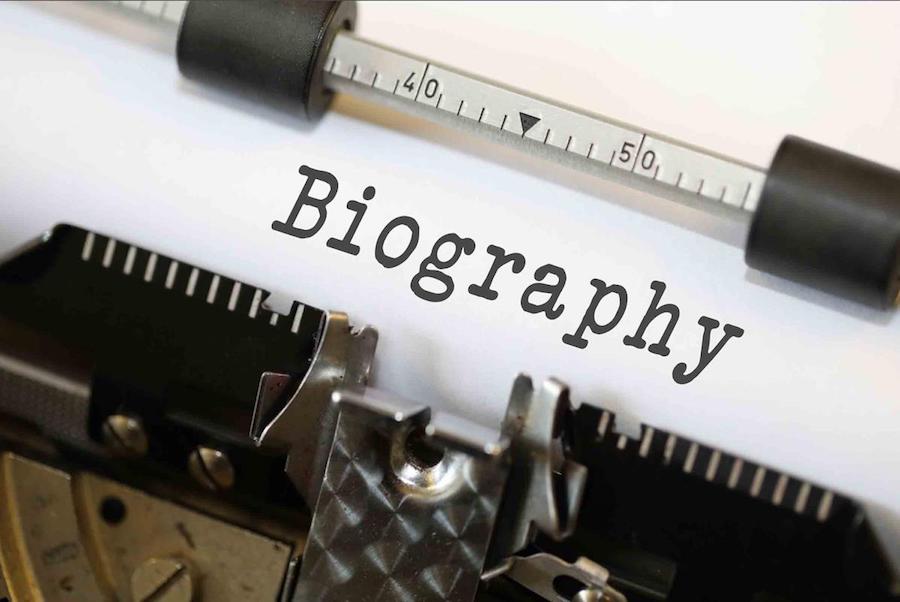Within the courses I teach at the Queensland Conservatorium Griffith University, I spend some time discussing how to write biographies for the emerging musician. I often hear from student musicians “but I haven’t done anything worthy of writing about yet!” – and my answer is “yes you have!” – it is how you frame it. This advice is for all musicians:
 The halo effect – remember you can bask in the glory of others. Have you heard of the term “famous by association?” That teacher you are learning from is a pretty impressive and accomplished musician – call them by their title (Dr/Professor/Sir/Lady/Her Highness etc) rather than just the first and last name. Were they a member of a pretty famous group? Or did they study at or lead some famous institution or win some fabulous award? Then write that too! E.g. “John Smith has recently completed his undergraduate classical saxophone studies with Grammy Award-winning Professor Timothy McAllister”. Any venue you have performed at or festival or larger group has some kind of credibility attached to it – it could be “world famous”, “popular”, “oldest”, “newest”, “best” etc. Adding positive adjectives to other aspects of your bio allows you to communicate a “vibe” about yourself and those you associate with.
The halo effect – remember you can bask in the glory of others. Have you heard of the term “famous by association?” That teacher you are learning from is a pretty impressive and accomplished musician – call them by their title (Dr/Professor/Sir/Lady/Her Highness etc) rather than just the first and last name. Were they a member of a pretty famous group? Or did they study at or lead some famous institution or win some fabulous award? Then write that too! E.g. “John Smith has recently completed his undergraduate classical saxophone studies with Grammy Award-winning Professor Timothy McAllister”. Any venue you have performed at or festival or larger group has some kind of credibility attached to it – it could be “world famous”, “popular”, “oldest”, “newest”, “best” etc. Adding positive adjectives to other aspects of your bio allows you to communicate a “vibe” about yourself and those you associate with.
Upsize and Advertise – the fact you only teach three students does not have to be written as such. If you are planning/wanting to have more students, this is a good way to double your biography as an advertisement e.g. “In the afternoon one can find John enthusiastically teaching the saxophone students of his growing private studio in Coorparoo”. The power words here are “enthusiastically”, “growing” and the fact we have advertised the suburb he his located. This will stick in the minds of readers and when someone asks about a saxophone teacher (be it online or face-to-face) it is easy to remember to recommend an “enthusiastic saxophone teacher” that is open to more students in Coorparoo. This concept is effortlessly transferable to writing about your performance, compositions, arranging etc.
 Stop sounding like a student – my long term beef with labels is that a hierarchical assumption occurs as soon as we use terms such as “student”, “teacher”, “musician” etc. This “pigeon-holing” can be quite detrimental and for some it takes a while longer to climb out of their label. My rationale is that we are all students of life and that improvement is an ongoing expectation. Therefore, if you are capable of engaging in your music within a professional context be it paid or unpaid then the “student” term needs to go. It helps with your professional identity-building and personal confidence. Rather than “studies with”, perhaps try “is guided by”; rather than “is a Bachelor of Music student at …” why not a “Bachelor of Music candidate”? The latter of these examples implies that you have an independent sense of self and are seriously approaching your professional career path.
Stop sounding like a student – my long term beef with labels is that a hierarchical assumption occurs as soon as we use terms such as “student”, “teacher”, “musician” etc. This “pigeon-holing” can be quite detrimental and for some it takes a while longer to climb out of their label. My rationale is that we are all students of life and that improvement is an ongoing expectation. Therefore, if you are capable of engaging in your music within a professional context be it paid or unpaid then the “student” term needs to go. It helps with your professional identity-building and personal confidence. Rather than “studies with”, perhaps try “is guided by”; rather than “is a Bachelor of Music student at …” why not a “Bachelor of Music candidate”? The latter of these examples implies that you have an independent sense of self and are seriously approaching your professional career path.
Communicate your ambitions – and don’t be shy about it. As an emerging or early career musician, you have the added advantage of youth and a fresh outlook on your future. Your older and maybe more cynical audience would love to live vicariously through your hopes, dreams and ambitions because it a) reminds them that they were young once too, and b) offers them insight into how they can possibly help you. You never know who is in the audience that could read about your plans to travel and study abroad who either knows someone you could stay with for free or even offer some financial assistance. Stranger things have happened. Advice: Never write “John Smith hopes to travel to Germany to possibly study with …” Although you are communicating plans, it is too self-effacing. People like to read about the “doers” and not the “gonnas”. Rather write, “John Smith will be travelling to Cologne, Germany at the end of the year to study with Alliage saxophone quintett member Sebastien Pottmeier”. This sentence is not only more assertive, it communicates enough detail to those who would like to help, therefore are more likely to.
Be inspiring, tell your story and be human. What got you into music in the first place? What music do you absolutely love? What else do you do? This could also be non-musical – I know some amazing musicians who are also amazing at other interests – growing prize orchids, surfing, scuba-diving, running marathons. Sometimes it is great to add these snippets of information because it humanises you and offers a conversation ice-breaker after the event when an audience member may want to come up and meet you or perhaps email you later. We need to be approachable.
 At the end of the day, the three core purposes of a bio are to tell people about who you are, what you do/have done, and make a memorable connection – this is something I call the “handshake through the text”. Good spelling and grammar are a given as well as keeping each paragraph centred on one theme e.g. paragraph one may be about your awards, para two about performance work to date, and paragraph three about your teaching and future plans. The end of one paragraph needs to lead on to the next – you’ll find these kinds of rules anywhere.
At the end of the day, the three core purposes of a bio are to tell people about who you are, what you do/have done, and make a memorable connection – this is something I call the “handshake through the text”. Good spelling and grammar are a given as well as keeping each paragraph centred on one theme e.g. paragraph one may be about your awards, para two about performance work to date, and paragraph three about your teaching and future plans. The end of one paragraph needs to lead on to the next – you’ll find these kinds of rules anywhere.
In many ways these basics are no different to the established musician but it is good to recognise there is not a truly good or bad biography – just there are different kinds.
For more information and examples – go to “Writing your biography – part 2”
Within the courses I teach at the Queensland Conservatorium Griffith University, I spend some time discussing how to write biographies for the emerging musician. I often hear from student musicians “but I haven’t done anything worthy of writing about yet!” – and my answer is “yes you have!” – it is how you frame it.
